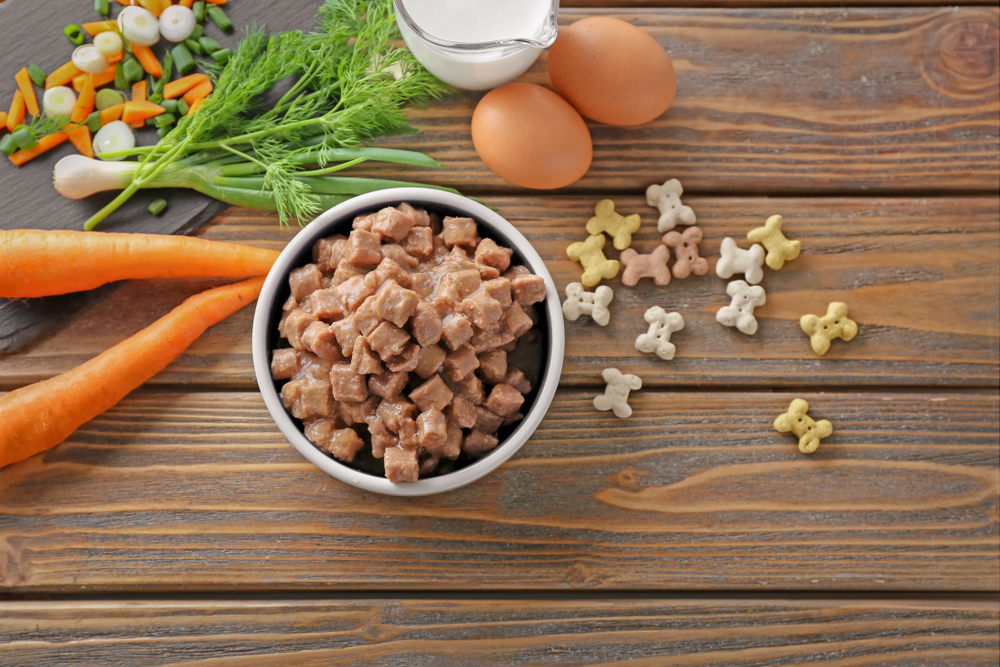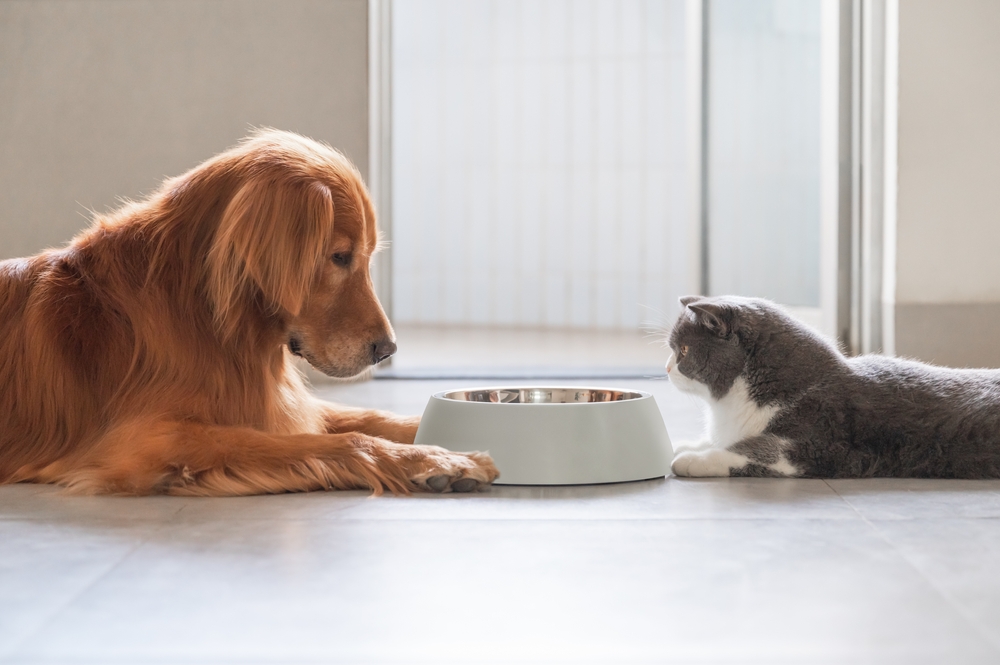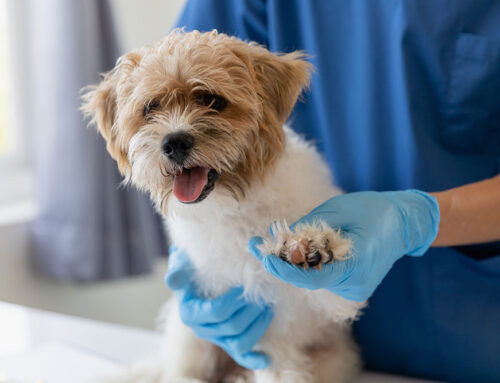Pet nutrition is a topic brimming with misconceptions that can confuse pet owners. These myths impact the health and well-being of our furry friends, so distinguishing fact from fiction is a priority. From the belief that grain-free diets are always superior to the idea that raw food is the most natural option, these myths can lead to nutritional imbalances and even health issues.
You must approach your pet’s diet with a well-informed perspective that takes into account their specific needs and medical history. Our team at Bayview Animal Hospital advocates for science-based nutrition customized for each pet. Let’s debunk the myths and provide your pet with the best possible nutrition that will ensure their vitality and longevity.
Myth 1: Grain-free diets are better for pets
Many pet owners believe grain-free diets are better for their pets, but this is often not the case. In fact, lack of grains does not necessarily equate to a healthier diet.
- Lack of evidence — There’s no substantial evidence that grain-free diets are healthier for pets, unless they have a specific grain allergy.
- Heart health concerns — Some grain-free diets have been linked to canine dilated cardiomyopathy (DCM), a serious heart condition.
- Balanced nutrition — Grains can be a valuable source of nutrients and energy for pets.
Myth 2: Raw food diets are best for pets
Raw food diets are promoted as the most natural for pets, which may sound appealing but comes with risks. Before switching, you must weigh the following risks against any potential benefits:
- Bacterial contamination — Raw meat can harbor harmful bacteria like Salmonella and E. coli, which put pets and people at risk.
- Nutritional imbalance — Providing a balanced diet with raw food is difficult and can lead to nutritional deficiencies.
- Dental health — Contrary to popular belief, raw diets do not necessarily improve dental health and may cause issues like tooth fractures.
Myth 3: Byproducts in pet food are bad
Byproducts in pet food are often viewed with suspicion, yet they are safe for pets and have nutritional benefits, including providing valuable vitamins and minerals that support your pet’s overall health.
- Nutritional value — Byproducts can include nutrient-rich organ meats that are beneficial for pets.
- Regulated standards — High-quality pet foods use byproducts that meet strict regulatory standards.
- Waste reduction — Byproducts in pet foods can reduce waste and make pet foods more sustainable.
Myth 4: Table scraps as treats are good for my pet
Many pet owners cannot resist their pet’s beautiful begging eyes and convince themselves that table scraps as treats are harmless. However, human food can cause serious health problems in pets. What seems like a small treat can not only be toxic but also contribute to long-term issues like obesity and nutritional imbalances.
- Toxic foods — Some human foods, like chocolate, onions, and grapes, and the sweetener substitute xylitol, are toxic to pets. Here is a complete list of harmful foods.
- Obesity risk — Table scraps can contribute to obesity, gastrointestinal issues, and blockages.
- Diet imbalance — Regularly feeding table scraps can disrupt the nutritional balance of your pet’s diet.
Myth 5: Pets know what they need to eat
Pets do not intuitively choose what they need to eat. Rather, they mostly gravitate toward what tastes good, which isn’t always what’s best for their health.
- Selective eating — Pets may favor certain foods over others, leading to an unbalanced diet.
- Nutritional knowledge — Pets do not understand their dietary needs or the nutritional content of food.
- Overeating — Given the chance, many pets will overeat, particularly with treats or high-calorie foods.
Making better nutrition choices for your pet

Understanding the truth behind pet nutrition, and knowing myths are myths, will help pet owners make informed decisions. Start with a consultation with your veterinarian, who can help you formulate an individualized diet according to your pet’s age, weight, general health, and lifestyle. Never try new foods, switch foods, or change the amount of your pet’s food without veterinary direction.
Avoid getting caught up in diet trends and focus on proven, science-based nutrition. Regularly monitor your pet’s diet, weight, and overall health with at least annual veterinary check-ups.
Need help making the right dietary decisions for your pet? Reach out to Bayview Animal Hospital and let us help. Call or schedule an appointment online, so we can provide expert guidance and help you formulate a diet plan tailored to your pet’s specific needs.







Leave A Comment